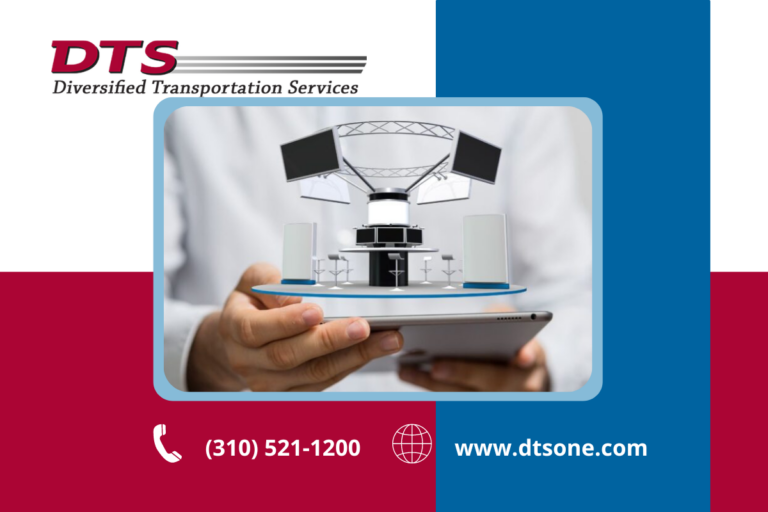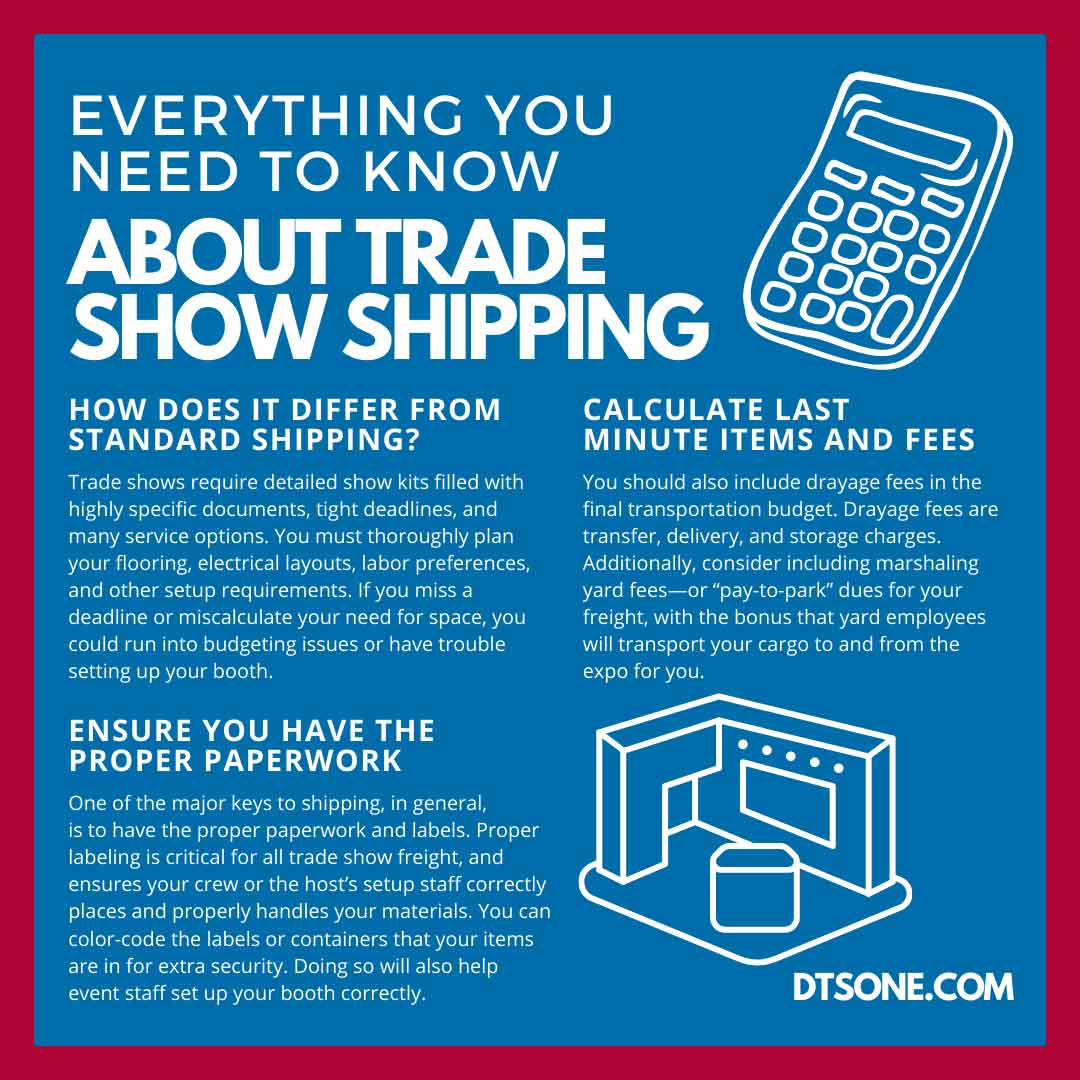
Signing up for a tradeshow is incredibly exciting. Using your knowledge and creative skills to showcase to hundreds or thousands of inquisitive minds is a fulfilling experience. A lot of time, money, and effort goes into setting up the booths for trade shows, including the logistics of shipping the items to their destination.
While you may be familiar with standard freight shipping, trade show shipping is more specific and challenging for first-timers. If you’re preparing for an upcoming trade show, here’s everything you need to know about trade show shipping.
If you have only participated in standard freight, don’t worry. You will become more familiar with domestic shipping protocols as time passes. However, trade show shipping has different requirements that can be complex for those who are unfamiliar.
Trade shows require detailed show kits filled with highly specific documents, tight deadlines, and many service options. You must thoroughly plan your flooring, electrical layouts, labor preferences, and other setup requirements. If you miss a deadline or miscalculate your need for space, you could run into budgeting issues or have trouble setting up your booth.
This type of shipping is also time-sensitive. Trade shows have specific delivery time windows to ensure the setup process runs smoothly. The show’s directors will ask that you ship your items to a warehouse or other holding site well in advance. Be sure to include these timeframes in your planning.
The key to a successful trade show’s transportation journey is to work ahead of time. Waiting until the last minute and rushing the logistic process does not leave room for error. As previously mentioned, trade show shipping requires a longer and tighter timeline than your traditional freight process. Some shows require shipment arrivals weeks in advance to kickstart the setup process.
You should create a detailed plan containing the events’ timeline, a budget, handling, and emergency guidelines when you commit to attending a trade show. Prioritizing these steps will help make the shipping process easier and more affordable.
Take the time to plan accordingly for a stress-free trade show.
Below are a few more things to consider:
One of the major keys to shipping, in general, is to have the proper paperwork and labels. Proper labeling is critical for all trade show freight and ensures your crew or the host’s setup staff correctly places and properly handles your materials. You can color-code the labels or containers that your items are in for extra security. Doing so will also help event staff set up your booth correctly.
Make sure you include the following on your paperwork to ensure your items are secure:
Always calculate the size and weight of your items, booth crates, and pallets before you ship them. Include the weight the padding or securing mechanisms add to each shipment. Doing so will help determine the total price of your freight.
It’s important to note that event venues typically do not receive trade show shipments. They receive and store these items in a designated warehouse where they hold all trade show items. This method makes it easy for the trade show directors to keep track of everything and get each booth to its respective space. Make sure to focus on the following when planning your destination and return scheduling:
Every trade show has special rules and regulations for the return process. While some shows provide return services, others will ask that you and your 3PL team make other arrangements. Finalize your return transportation plans before you head to the show to avoid mishaps, delays, and extra handling fees. Contact the trade show freight director to get the correct information you need.
Trade shows take extensive planning and budgeting to put together. While event planners aim to finalize everything by a certain date, you must plan for last-minute changes and fees that may occur. If you or your business partner forgets something, you must arrange accommodations for delivery.
You may also receive a material handling fee. This fee covers the cost of moving your items from point A to point B. The overall price will also include the amount of time they stored your items in their trucks, warehouse, or designated storage space.
You should also include drayage fees in the final transportation budget. Drayage fees are transfer, delivery, and storage charges. Additionally, consider including marshaling yard fees—or “pay-to-park” dues for your freight, with the bonus that yard employees will transport your cargo to and from the expo for you.
You want to prevent forced freight when delivering to a trade show. Forced freight occurs when no one picks up your stuff after the event—meaning you lose control of your shipment, which could take days to locate. The trade show director will use their freight services to ship the items.
You can avoid this by partnering with a trustworthy 3PL team and ensuring you uniquely label your items. You should also fill out a material handling agreement in case you need to show that someone is coming to get the freight.
Sometimes you may have to deliver temperature-sensitive items to a trade show. If so, creating a separate plan for them is best since the delivery logistics differ. Refrigerated items typically bypass the warehouse and marshaling yard steps.
However, they run on a much tighter schedule, and your team must deliver them to their location at their assigned time. Confirm these items’ locations and lock them in their temperature-controlled containers.
Knowing everything you need to know about trade show shipping comes with time, experience, and often referring to our quick guide to this special form of transportation. If your business needs assistance handling trade show freight shipping, allow us to lend a helping hand.
Diversified Transportation Service offers tradeshow shipping to relieve you of the stress of hard deadlines and intense time slots. We want to be the best 3PL partner for you. We’ll help coordinate a plan and assist in keeping track of your shipment while communicating transparently throughout its journey.
Talk to one of our knowledgeable agents today for more information.

Whether you're a company looking to improve one facet of your supply chain, your entire supply chain, or simply looking for a transportation and logistics consultation, we can help.